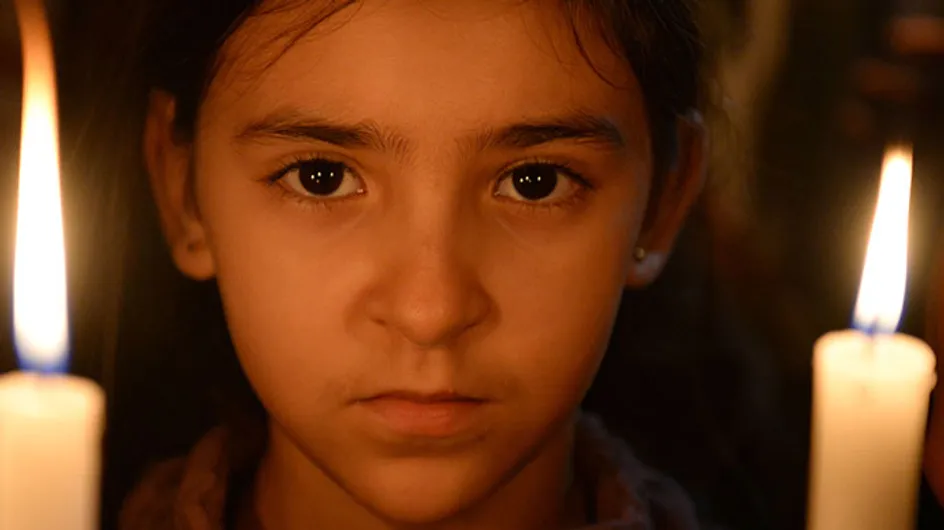Watch Yann talk about female equality at the TEDX conference 2014:
Why did you decide to set up The Womanity Foundation?
I started by helping children, mainly girls, to get an education. Over time, I identified in women and girls not only the least privileged members of societies across the world, but also the ones who, if empowered, can accelerate progress for the whole family and community. The Womanity Foundation thus evolved to focus on girls and women’s advancement, for their benefit and that of the larger community.
What is the overarching mission of the Womanity Foundation?
Womanity believes that girls and women are agents of progress in society, and that by granting them equal access to education, the labour market and public life, they will accelerate positive changes in their communities and enable them to thrive.
In particular, Womanity supports girls’ and women’s access to quality education and vocational training; creates employment, revenue generation and professional career opportunities for women; promotes mechanisms that give women a voice in society, politics and governance institutions; and protects women’s and girls’ physical and psychological integrity.
What project are you most proud of?
Proud may not be the word I would use, since I believe in modesty as a prime virtue in the field of philanthropy. But I’m always excited by innovation.
Our newest project is an award, which will serve to identify successful ways to prevent violence against women and to replicate them to new contexts. We call it the Womanity Award and we believe it will promote awareness on this pernicious issue, which not only harms individual women but whole communities.
Can you tell me a bit more about the success that the Al Fatah School has had so far?
Our support to Al Fatah School for Girls started in 2007 in partnership with Cherie Booth Blair, Esquire, and the British Council.
We renovated the buildings and provided equipment and materials, so that the school could run in two shifts rather than three. It had one of the largest populations in the country, nearly 5,000 girls and over 200 teachers and staff members. After this first round of support, we continued with teachers and school staff’s training and ensuring a favourable learning environment for the students.
Based on our work at Al Fatah School, we developed the “School in a Box” program to transform schools for girls across the country in models of quality education. The model is now replicated in 9 schools (12 by 2014), and is co-funded by the UBS Optimus Foundation. “School in a Box” was recently evaluated by an external educational expert, Dr. Foley, who praised its impact on girls’ empowerment and their performance, as well as on the participation of the communities to the schools’ good functioning and to ensuring girls’ attendance.
What do you think are the main challenges to overcome to ensure education for all girls in Afghanistan? How do you think your programme helps with these?
The challenges to girls’ education in Afghanistan are both structural and cultural. This includes the lack of competent female teachers to teach in girls’ schools, poor infrastructures, overcrowding, lack of hygiene facilities and safe drinking water, long distances between home and school, and poverty.
Cultural obstacles are linked to that girls are not seen as an asset for their families since they will ‘belong’ to their husband’s families. When they reach puberty, many parents start keeping them at home and thinking of their marriage. At this point, education becomes secondary, if not totally useless, in their eyes.
Would you describe your work as dangerous?
Our Afghan team is our main asset in Afghanistan, and they have never met with any security problems or threats. They are experienced professionals dedicated to their work. Their deep understanding of and respect for the Afghan traditions and customs enable them to negotiate and mediate with the communities in which our schools are located.
They always seek to accommodate the schools’ needs while pursuing deep changes in the society, pushing for the shift in perception on the positive contribution that girls and women can make to their communities, if they receive an education.
What is the most important thing you want to achieve through your School In A Box programme?
We want to make sure that communities value girls’ education as much as boys’, and that girls are allowed to pursue their aspirations to become active participants in their society, with the ultimate goal of helping their communities to thrive.
Have you ever worked directly from Malala Yousafzai? What do you think we can learn from her story?
We haven’t yet had the chance to work directly with Malala Yousafzai.
One of the main lessons we can learn from her story is that the power to redress injustice lies with the people who face it. They need our solidarity and support, more than our pity or outrage. With leaders like young Malala, whole communities can find the means to progress.
Do you think we can expect more female leaders from Afghanistan and Pakistan?
There are already a number of great female change-makers in those countries, and more will emerge. We see many bright young women in our schools, hungry for knowledge, eager to be part of what’s happening in the world, developing their leadership and working hard to fulfill their dreams.
But we also need men who will believe in women’s capacities to lead and to contribute to advancing our societies. They are an important factor in facilitating women’s equal participation and leadership. Very often the fathers play a decisive role in the girls’ possibility to educate themselves and to realize their own potential. Malala’s father is a great example for this; he is a courageous and visionary man, indeed.
What do you think the future holds for female rights to education in these countries?
It’s one of their greatest opportunities these countries have to leap forward, out of their misery. If one blocks half of the population from taking part in the socio-economic life of a society, growth stagnates and stability is threatened. If we release the potential of girls and women, and allow them to participate actively and safely to the community’s development, we will see increasing prosperity and a bigger chance for peace. I am convinced of this.
What can women in the west do to support these programmes?
The most obvious was to help is to contribute financially to programs that have proven to be successful and that work on systemic change.
But the women and men who are pushing for progress need more than money, they also need collaborations with like-minded people, organisations and institutions, input from experts, empathy and solidarity. We are all linked and we can only advance if we advance together.
Got a question for Yann? Tweet him @forWomanity and follow us @sofeminineUK!













